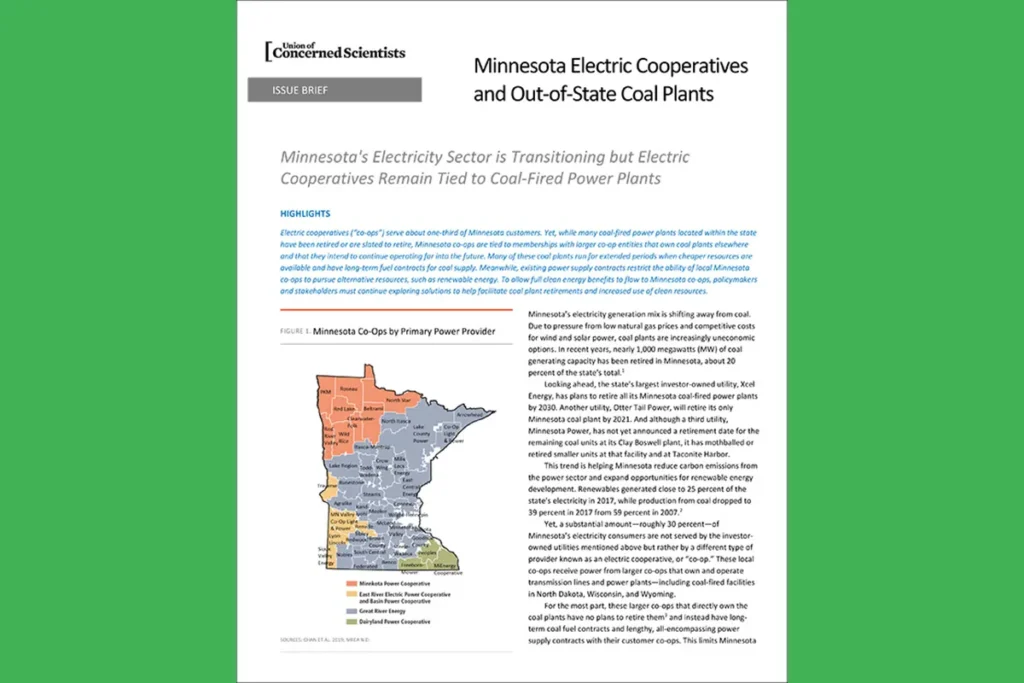The Union of Concerned Scientists (UCS) just released an issue brief on Minnesota electric cooperatives (“co-ops”) and the role of out-of-state coal-fired power plants. While Minnesota-based coal plants are being phased out, local electric cooperatives in the state remain tied to memberships in larger generation and transmission cooperatives (G&T’s) that own coal plants in North Dakota, Wisconsin, and Wyoming.
The UCS issue brief, Minnesota Electric Cooperatives and Out-of-State Coal Plants, illustrates that many of these coal plants run for extended periods when cheaper resources are available and have potentially risky long-term fuel contracts for fuel supply. Meanwhile, existing power supply contracts restrict the ability of local Minnesota co-ops to pursue alternative resources, such as renewable energy.
In Colorado, Indiana, and Wisconsin, G&T’s such as Tri-State Generation and Transmission Association, Hoosier Energy, and Dairyland Power Cooperative have recently announced plans to retire coal-fired power plants and replace them with clean energy. The UCS brief recommends that Minnesota co-ops, policymakers, and stakeholders continue pursuing options to facilitate this trend away from coal and toward full clean energy benefits flowing to local Minnesota cooperatives.
This UCS report comes on the heels of the Rural Electrification 2.0 report, which CURE published with partners in 2019. This report examined the electric co-op debt associated with G&T coal power plants as a driving force behind co-ops actively resisting a clean energy future. Both reports point to coal as a bad deal for co-ops that puts co-op member-owners’ interests at risk.
…….
The Union of Concerned Scientists puts rigorous, independent science to work to solve our planet’s most pressing problems. Joining with citizens across the country, we combine technical analysis and effective advocacy to create innovative, practical solutions for a healthy, safe, and sustainable future.
CURE’s mission is to protect and restore resilient rural landscapes by harnessing the power of citizens who care about them. Its Energy Democracy Program focuses on strategies to impact climate, energy, and environmental justice decisions affecting rural residents. Minnesota’s rural electric co-ops are within that focus. Erik Hatlestad leads the program and focuses primarily on empowering Minnesota’s rural electric co-op member-owners to have a greater voice in the future of their local co-ops.


